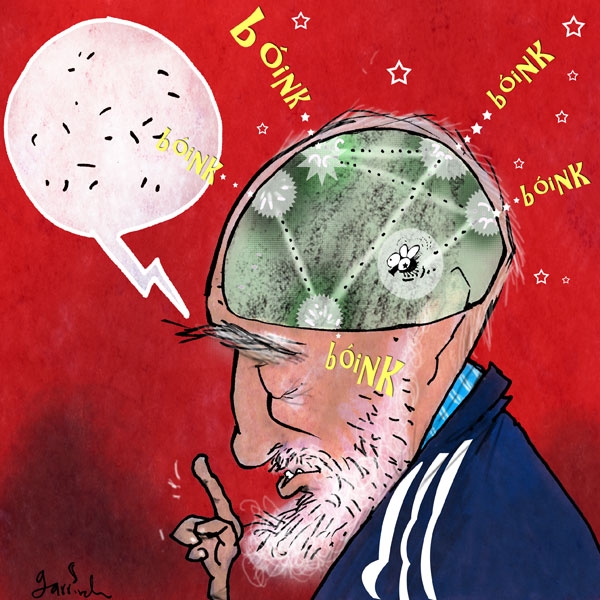
One day my grandchildren will ask me,
“What was his name… Grandma, what was his name?
Gastro…? Mastro…?” And I’ll be annoyed with them
for their forgetfulness, for their flippancy…
but when I turn my back I’ll laugh, relieved, compensated.
With her long plastic nails she deals the cards on a Havana street corner, to read the fate of whoever pays her one convertible peso for the consultation. They ask about almost everything, about houses, love, foreign travel, and problems with the law. But over the last week her clients on several occasions have repeated the same question. Is Fidel Castro alive?
She was surprised because for months no one wondered about the Absent-in-Chief. Then she remembered that it was August and the birthday of the former president was approaching and she begin to understand why the great curiosity. The first who tried to find out was a grey-haired gentleman chewing snuff, and she was then approached by a woman married to a foreign business man, and later a beardless boy who looked like a rocker.
The decks are elusive and no self-respecting fortune-teller jumps to predictions without heeding her intuition. “Symbolically he’s gone, but he’s still breathing,” was a phrase that came to her lips as if she were dictating from another dimension.
At midnight that same day they interrupted the television programming to air a tribute to Fidel Castro’s 86th birthday. It was just images from the archives, testimonies about his best moments when he governed a whole island through the windshield of his jeep. It was all accompanied by syrupy music notes and sharp voices, which some interpreted as a “Lord have mercy.”
Throughout the day he didn’t appear live and direct in front of the TV cameras, nor did he send a message to his followers. The lady of the water glass and decks of cards breathed a sigh of relief. Her prophecy had not been wrong. The man lives, but everything he symbolizes is fading.
It would be difficult to find in contemporary history someone who has been rumored to have been killed more times than Fidel Castro. One of the reasons for this obsession with extermination is the excessive weight he’s had in our last half century in Cuba, the disproportionate preeminence of the personal will of the Maximum Leader in every single one of the events that have occurred, whether momentous or trivial.
An apologetic poem of 1959 that mimicked the “Triumphal March” by Ruben Dario, held the young bearded absolute and indisputable authority responsible for all the achievements of the triumphant Revolution, those already established and those to come. Throughout this time official propaganda was charged with maintaining the illusion that everything was due to the “great leadership of the invincible Commander in Chief.”
I remember that in the second half of the 1990s, when several vegetarian restaurants opened in Havana, a National News reporter on TV said we now enjoyed this new option thanks to an idea suggested by Fidel Castro, A friend, who had the habit of thinking the inverse of what the government thought, posed this suggestive question: “So then the Commander is to blame for our 40 years without vegetarian restaurants?”
On July 31, 2006, health played a trick on the historic leader and he was forced to transfer power to his brother Raul Castro. “Fidelism” then began to fade, but very slowly. This was because the features that described the singularity of the Cuban Revolutionary process were not the result of the collective analysis of a Party, nor even devised in strict compliance with Marxist-Leninist doctrine; they were essentially the whims of one man who managed to concentrate absolute power in his own person.
And his whims covered every facet of our national life: livestock, the sugar industry, education, public health, culture, defense, tourism, religion. In every one of these he left his imprint, intrusively and aggressively, knife in hand determined to mark every tree in the forest, every single log, regardless of its thickness or size.
Now the symbol is fading, with no fuss, rather with relief from the many of us who had to endure his moments of greatest vitality. Perhaps he will breathe for a few more years, who knows. But we do know that the curiosity about whether or not his stubborn heart is still beating, is also already fading.
14 August 2012
